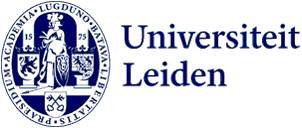
How the EU is trying to deter economic coercion of countries
A Dutch company that uses Lithuanian components could go bankrupt because China blocks its products for political reasons. The EU is aiming to deter this kind of economic coercion with a new legal instrument. Freya Baetens, Professor of EU External Economic Law, will elucidate this in her inaugural lecture.
Freya Baetens studied law in her home country Belgium and in the United States. She obtained her PhD in England, has worked at the University of Oslo and is now also a full professor at Oxford University. She has taught as a visiting professor in several other countries, including Switzerland, Suriname, China, Australia and Singapore. ‘It’s useful to look beyond our Western European borders, to find out how they do things elsewhere,’ she says. ‘This experience of what goes on outside Europe also benefits the students here.’
Your inaugural lecture is about a new legal instrument of the EU: the anti-coercion instrument. The EU can use this in response to economic coercion; what is economic coercion?
‘It refers to countries that use their economic power to influence political decisions in another country. This is dangerous, because ideally countries are politically independent of one another.’
‘China stopped all imports of Lithuanian products and products containing parts from Lithuania, although they never officially acknowledged this.’
Can you give an example of economic pressure?
‘The reason for creating this instrument was that Lithuania had opened a trade office in Taiwan, and Taiwan had opened one in Lithuania. China saw this as recognition of Taiwan’s independence and was absolutely furious. When expulsion of Lithuanian diplomats didn’t work, China stopped all imports of Lithuanian products and products containing parts from Lithuania, although they never officially acknowledged this. The German automotive industry uses many Lithuanian parts, and when German exporters were blocked from selling their products on the Chinese market, this became a problem for the EU as a whole. Another example is Russia, which is putting pressure on the EU to reduce support for Ukraine. America has also tried to coerce the EU in relation to trade with Iran.’
The EU intends to use the new instrument to prevent this pressure. How will it work?
‘The instrument is a last resort, to be used when the diplomatic route has failed. The European Commission will first investigate whether the pressure being exerted is actually intense. The Commission will then try to negotiate with the country in question. If necessary, this will be followed by countermeasures, which also involve economic pressure, such as stopping the entry of products or refusing investments.’
Will this legal instrument really help?
‘We don’t know yet, because it was only approved by the European Parliament at the beginning of this month and the Council still has to give its final approval later in the month. The EU regards human rights and freedom of expression as important and has criticised the treatment of Uyghurs in China, for example, which has also made China unhappy. If you’re punished economically for expressing your opinion, it’s good to have something available as a countermeasure. Otherwise, it’s a case of “the bullies have won” and to some extent you’ve sold your soul. Although no instrument can be perfect.’
‘If you’re punished economically for expressing your opinion, it’s good to have something available as a countermeasure.’
In what way is the anti-coercion instrument not perfect?
‘The EU is both an interested party and judge at the same time. I think countries outside the EU will see that as unfair. An independent arbitration committee would be better, so that people who aren’t associated with the EU examine whether the Commission has acted fairly. Another point is that the EU itself sometimes exerts economic pressure. For example, by threatening to withdraw development aid if a country doesn’t do something.’
Why did you choose this as your specialisation?
‘I find the EU very interesting. Not perfect, but very successful in the area of economics: the EU internal market is the biggest in the world. Freedom of movement has opened doors that our grandparents would never have thought possible. Economic cooperation prevents wars because we’re dependent on one another. Hardly any products are now made in just one country, from raw materials to end product. We really noticed this during Covid. The anti-coercion instrument isn’t something remote from everyday life: economic punishment for political opinions or actions can have serious consequences for companies and their employees.’
Text: Thessa Lageman
Photo: Unsplash
